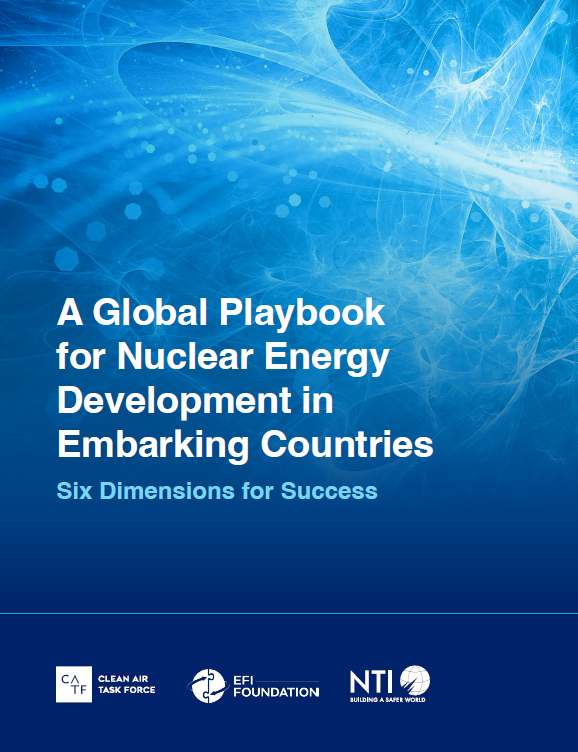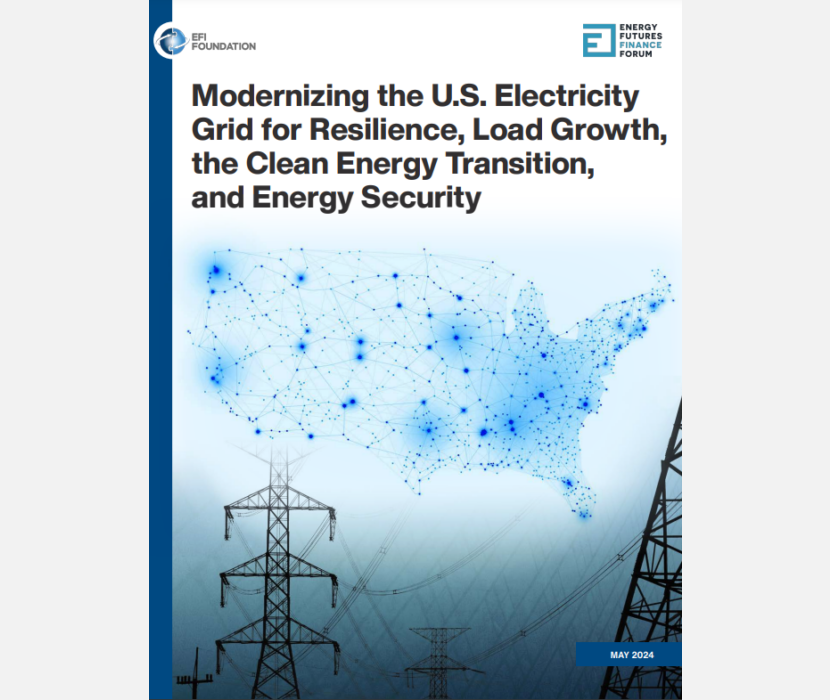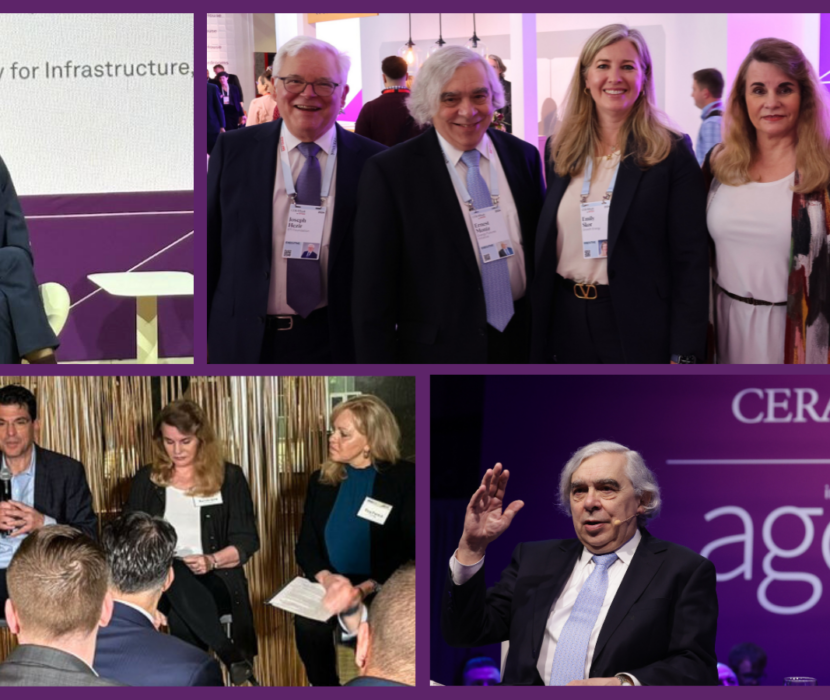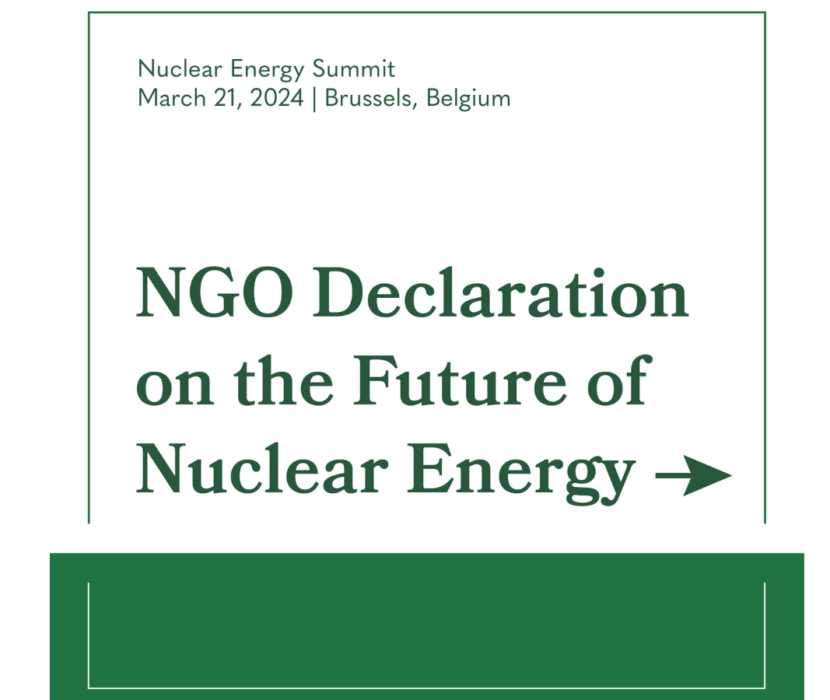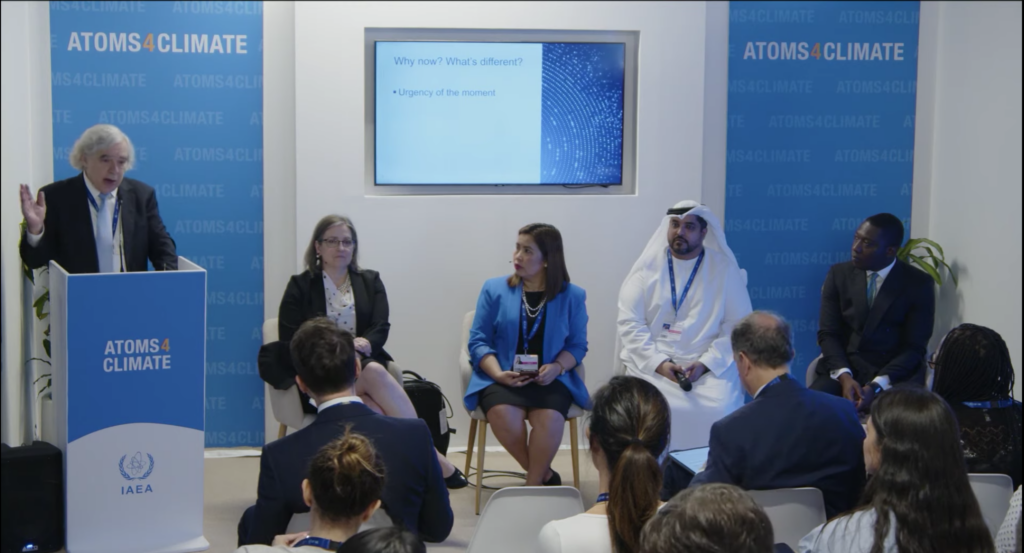
DUBAI, UAE (December 4, 2023): Amid growing momentum for nuclear power as an essential part of a suite of solutions for climate change, the EFI Foundation, Clean Air Task Force (CATF), and Nuclear Threat Initiative (NTI) launched a new report at this year’s annual United Nations conference on climate change (COP28). The report—A Global Playbook for Nuclear Energy Development in Embarking Countries: Six Dimensions for Success—outlines pathways for the responsible, sustainable, and effective development of new nuclear energy projects.
The new Playbook focuses on “embarking countries,” a term used by the International Atomic Energy Agency (IAEA) to describe countries that do not currently have nuclear infrastructure but plan to deploy new nuclear energy projects. The comprehensive and options-based approach in the Playbook addresses institutional, business model, security, and human capital complexities and can guide countries in scaling up new nuclear energy projects to meet national goals for clean energy and growing electricity demand.
The launch event, hosted at the IAEA pavilion at COP28, brought together President and CEO of the EFI Foundation and Co-Chair and CEO of NTI Ernest J. Moniz, Executive Director of CATF Armond Cohen, and a panel of government representatives and industry experts for a discussion moderated by Diane Cameron, the Nuclear Energy Agency’s Head of Division for Nuclear Technology Development and Economics.
“Nuclear energy can play an essential role in the global effort to manage climate change, provide clean electricity, decarbonize industrial systems, and bolster energy security and reliability,” said Moniz. “For nuclear to make a meaningful contribution toward each of these goals, we need to rethink how we conceive, build, regulate, and finance these technologies and projects. The Playbook presents options for a comprehensive strategy that embarking countries can optimize for their unique circumstances. This will help create a global nuclear ecosystem that can deliver historically large annual nuclear deployments for an extended period and meet strong nonproliferation and nuclear security standards.”
Cohen described the critical moment for nuclear energy, noting that “nuclear energy has the potential to provide millions of people all around the world with carbon-free, firm energy—helping reduce greenhouse gas emissions while boosting energy access and energy security. But the ecosystem countries rely on to develop and deploy nuclear energy is fundamentally flawed. This new Playbook provides an overview of the routes embarking countries may take to navigate this ecosystem and develop nuclear energy fleets of their own—and contributes to a global push for new pathways toward a world in which nuclear energy plays a meaningful role in global decarbonization.”
The Playbook is being recognized for its distinct approach, which identifies principles and best practices across six dimensions that countries can use as they pursue new nuclear energy projects.
“We’re seeing increasing recognition of the importance of nuclear energy as a climate solution that also promotes energy security. Diverse countries around the world are committing to accelerating deployment of nuclear energy as a source of baseload power and industrial heat as they look to diversify their energy supplies and achieve their net zero targets. The Playbook offers a thoughtful, options-based approach to help guide these countries to meaningfully scale up new nuclear.” —Diane Cameron, Head of Division, Nuclear Technology Development and Economics, OECD Nuclear Energy Agency
“Poland and central and eastern European countries are taking meaningful steps to advance new nuclear energy projects to meet energy and economic security goals with low-carbon energy. The Playbook comes at the perfect time and offers frameworks for how to accelerate nuclear deployment in a sustainable, effective, and responsible manner, while being cognizant of national and regional circumstances. The next half-decade is critical to enabling new nuclear at scale; guidance in the Playbook provides approaches for how to support action now to ensure efforts are not wasted.” —Michal Kurtyka, Former Climate and Environment Minister, Poland; COP24 President
“The Playbook is an important and timely guide for countries embarking on nuclear energy programs. Its recommendations come at a critical moment and will help ensure that we scale up nuclear energy and reach our Net Zero Nuclear goals efficiently and securely.” —Mohamed Al Hammadi, Managing Director and CEO, Emirates Nuclear Energy Corporation
(Share this post with others.)


